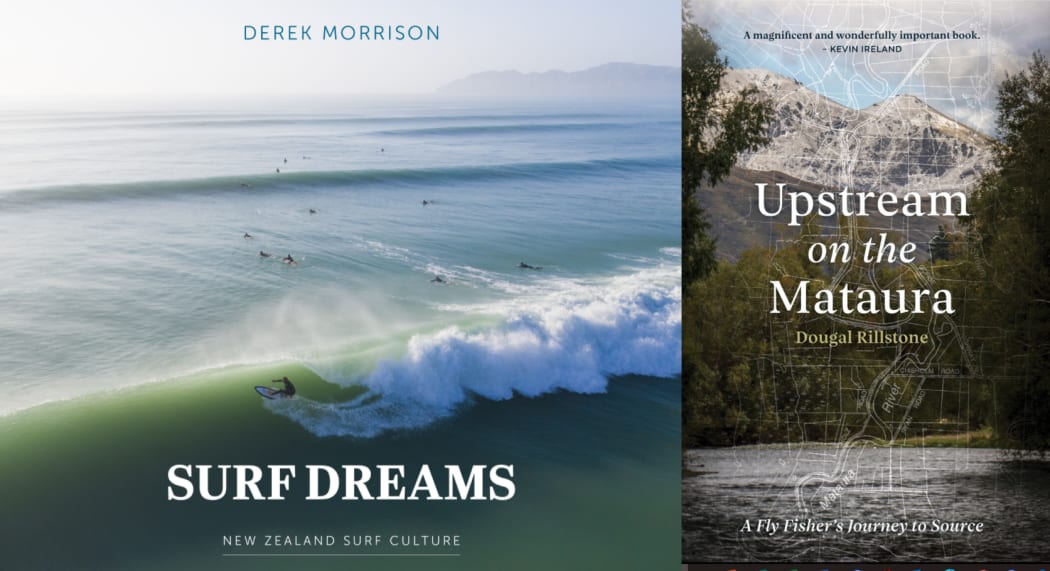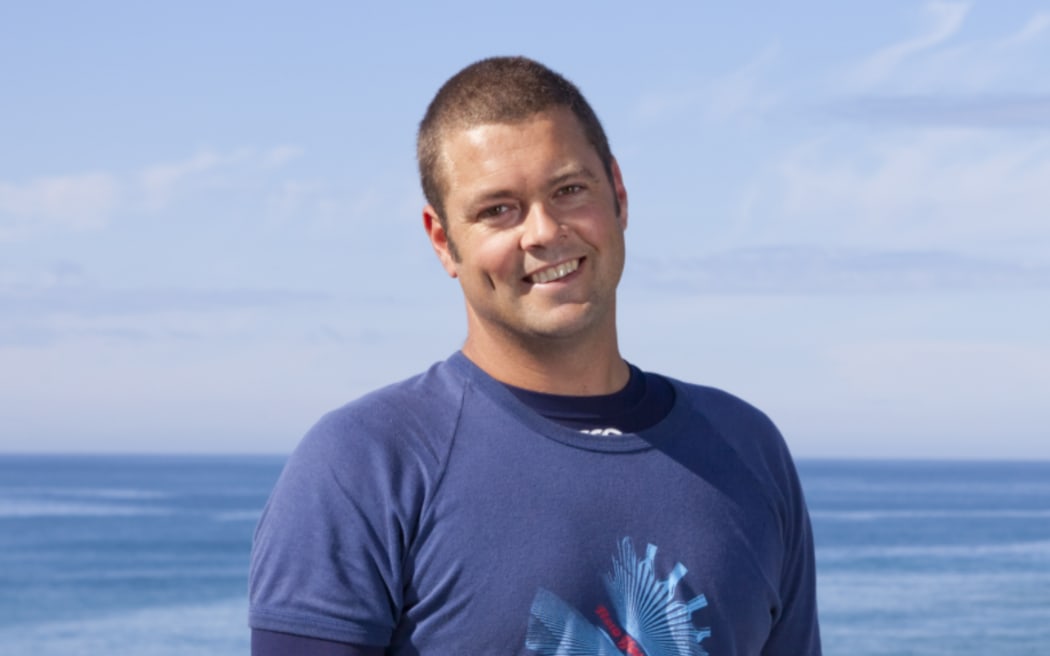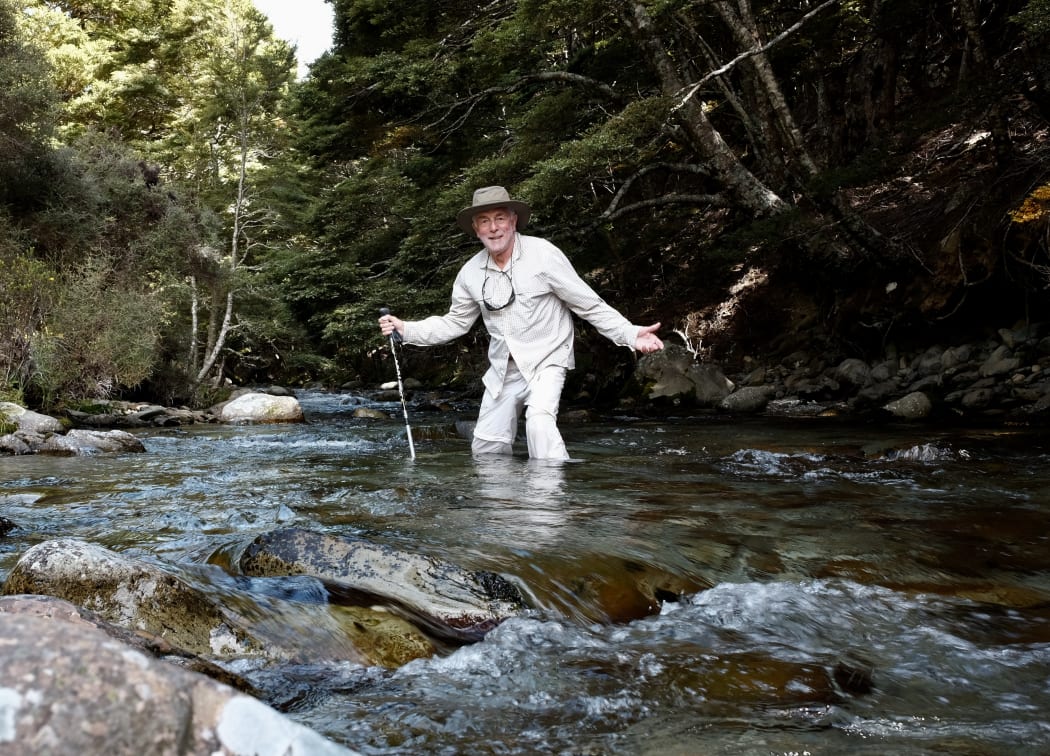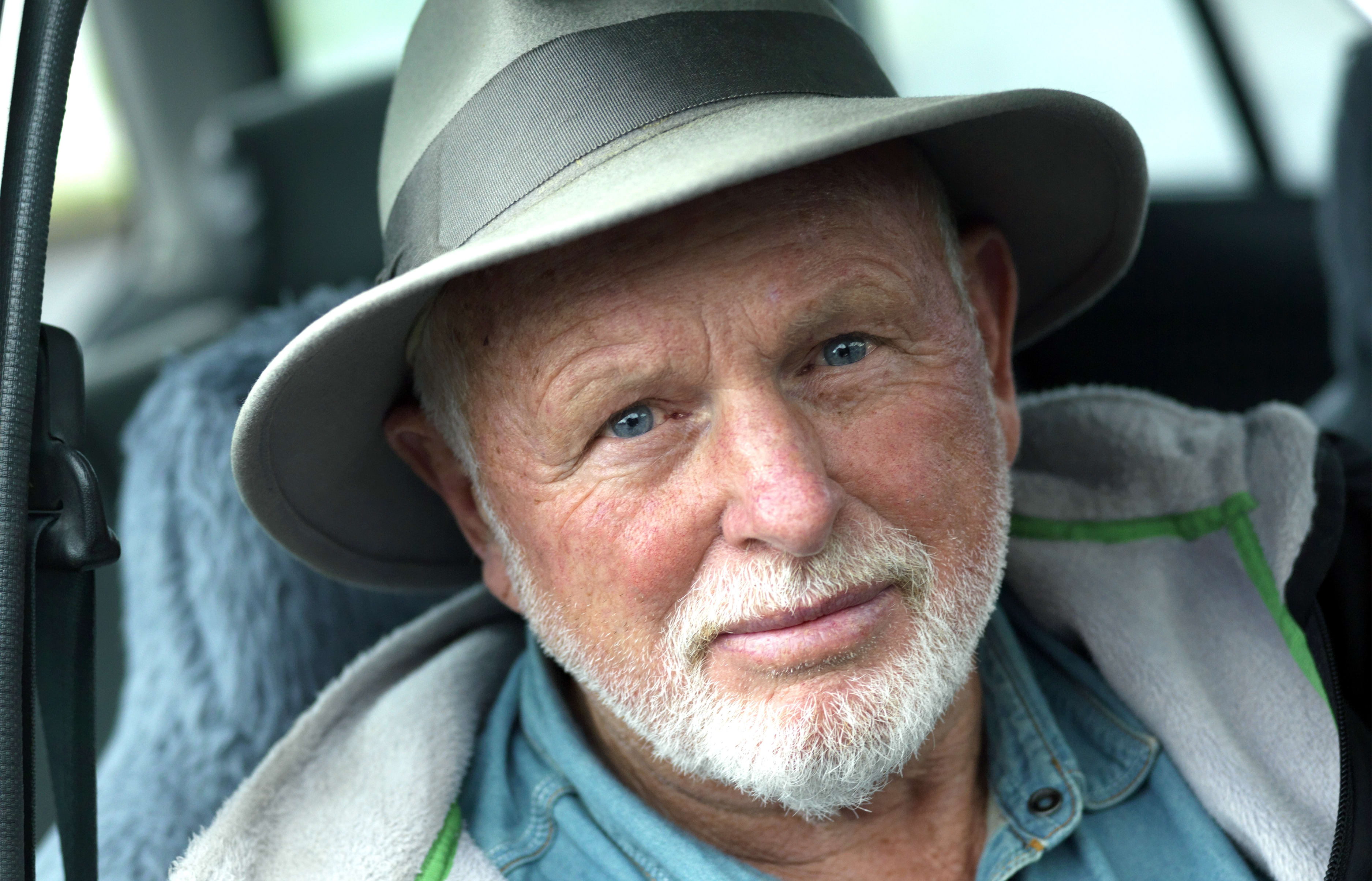Angler Dougal Rillstone (author of Upstream on the Mataura) and surfer Derek Morrison (author of Surf Dreams) talk to fellow explorer Bruce Ansley about their love for the wild places of Aotearoa.
This conversation was a highlight of the 2021 Dunedin Writers & Readers Festival.

Photo: Penguin, Mary Egan Publishing
Highlights:
Dougal Rillstone: My association with the Mataura river Roes back a long way. I was born a stone’s throw from it. I lived on the eastern side of Gore in a very ordinary street. But we had paddocks beside us. We had the Waikaka Stream at the end of our road. It was a wild place. And that was where I grew up, and grew to love being near water and the river. The Mataura was about three blocks to the west of us. And we were surrounded by green hills and the Hokonuis. And it became the landscape of my happiness really. I’ve been lucky because I feel such joy when I’m fly fishing. It’s helped me going back to the river and feeling good about it. But you can’t lose sight of what you’ve lost in that regard. The main [Mataura] river is holding up ok, but the tributaries are being damaged by changes in agricultural practice.
Dougal Rillstone: One of my favourite streams is Fortune Creek, which I write about in Upstream on the Mataura. This beautiful little stream just running on the north side of the Hokonuis, into the Mataura. Water as clear as vodka. Beautiful plant life swinging in the current there like flags. Trout. A clean bottom. And, in the space of 15 or 20 years, for economic reasons, the farmer gave up sheep farming. It was converted to dairy. Pretty quickly the streamside vegetation was pulled out and burnt.
And before you know it there are pivot irrigators going across that landscape. There is cowshit arcing through the air fertilising the ground. And no surprise quite quickly that Fortune Creek deteriorated badly. The water lost its gloss. I used to drink from it with impunity. But I started to think that I shouldn’t. And the insect life in the stream deteriorated badly. And frankly, it died. It runs under the highway as you head towards Riversdale. It’s an inconspicuous thing. If you cross over it, it looks ok, but if you get close to it, and look at it in any kind of detail, it’s a dead piece of water. And that’s happened too much through that catchment.
Bruce Ansley: I’ve just come back from a week of tramping on the West Coast, and possibly the only virtue of Covid-19 is that it’s kept a lot of tourists out. Bad news if you own a hotel in Fox Glacier, but good news for trampers. It does seem to me that we’re getting the country back again. There were a lot of surfers coming in from overseas, weren’t there?
Derek Morrison: That was what was filling up Raglan and those main [surfing] spots. So without that now, it’s definitely got a much better feel to it. Because Kiwis have a certain way of operating in the surf. They understand the unwritten laws of who gets right of way. But people from other places have a very different style of it. They’ve paid to come all the way to the other side of the world to surf Raglan. So that’s their wave, and they’re going to take it, so you end up with a lot of aggression and collisions. Particularly with Raglan. Because everyone wants to surf it, whether they know how to surf or not.
Dougal Rillstone: The same has really been true of fly fishing as well. Just the numbers of people that have been flying in using cheap airfares. Filling up the river. Destroying solitude. [Since Covid-19] it’s been like stepping back into the ‘70s. It’s been wonderful.
Bruce Ansley: I’d like to read something that Derek has written in Surf Dreams. “Surfing the heartbeat of the ocean’s surface is to merge with nature in all her creative spectacle. No two waves can be the same. The very moment you’re immersed in, can never be recreated."
Derek Morrison: Being out in that water has been likened to being in a meditative state. You’re breathing in those positive ions from the top surface of the ocean, and trying to get in tune with a rhythm which is coming however long – a 12-second period, a 20-second period – which is how long the waves take to come. The wind comes into that as well. I have a friend who’s in the next book coming out in November. He’s done a lot of training in meditation, and he believes that surfing is about as close as you can get to practising for ten years in Tibet to be a monk. He thinks surfers get it.
Dougal Rillstone: He obviously hasn’t been fly fishing, Derek.
Derek Morrison: I think the trouble with fly fishing is obviously the frustration, surely?
Dougal Rillstone: No, not really. It’s that same immersion in the surroundings, because the moments of throwing a fly towards a fish, even if you’re having a great day, are not all that often. I’m spending maybe eight hours walking beside the river. In it. Crossing it. Watching the birds and all of that stuff. And you’re very much in the moment, as I imagine you are in the water. You do get a sense of the complex harmony of all that. I read a study by Otago University people and a university in Canada recently saying that the sound of moving water is the best sound for human well-being.
About the speakers
Derek Morrison

Derek Morrison Photo: Derek Morrison
Derek was born into a farming family near Putaruru in 1974. While studying veterinary science at Massey University, he discovered his two passions: photography and surfing. He began supplying images for New Zealand Surfing magazine and eventually took over the editorship.
After a stint working in Sydney, in 2008, he moved to Dunedin to raise his young family and to start his company Adventure Media Group Ltd. He continues to contribute to a range of leading magazines as well as his surf, lifestyle, and culture photo blog, Box of Light. He is married to Rachael and they have three children, Taya, Rewa and Keo.
Dougal Rillstone

Dougal Rillstone Photo: Supplied
Dougal was born close to the Mataura River in Gore in February 1949. He shared an early passion for books with a love of the outdoors — those wild places on the gorse-patched hills and beside rivers and streams, all just a short walk or ride from his home. The Mataura River was both swimming pool and playground during his childhood. One summer’s evening while he stood chest-deep in a long pool, facing downstream into the fading light, he became mesmerised by the sight of rippling rings left by rising trout on the otherwise smooth surface. He has been haunted by moving water ever since. After five years working in Auckland and London, Dougal retuned to the south in 1976, drawn back to be near family and the rivers and landscape of his happiness. He is a passionate and accomplished fly fisher. Towards the end of his significant business career, Dougal began writing about his experiences in the outdoors. His work has been been published by Gray’s Sporting Journal and Midcurrent in the USA, FlyLife Magazine in Australia, and Wilderness Magazine in New Zealand. His book, Upstream on the Mataura, is, in part, a chronicle of his 240-kilometre walk beside the river from the coast at Fortrose to the source of the river, in the Eyre Mountains. Dougal lives in Dunedin with his wife, Sue, and shares a fishing cottage in Balfour with old friends.
Bruce Ansley

Photo: Jane Ussher
Bruce is the author of 11 books, including Coast which won the NZ Post Book Awards in 2014. His last book, Wild Journeys was published in 2018 and was a bestseller. But it’s Down South which sums up a lifetime’s work and fascination for Bruce. He has spent much of his life in the South Island. He was raised in New Brighton, Christchurch, and has lived in Dunedin, Christchurch, the Marlborough Sounds, and Golden Bay. He has grown up with the south's people, its cities, towns, rivers, mountains, bush, and plains. He has picked tobacco in Motueka, been a commercial fisherman in Fiordland, and a deer farmer on Banks Peninsula. He has worked in radio, television, and newspapers in the south too. For almost a quarter of a century, he was the Christchurch-based writer for the NZ Listener magazine, until he became a full-time author. As a writer, tramper, and traveller, and being professionally nosy, he has poked into many corners of the island, although nowhere near all of them: he finds the south and its people endlessly fascinating. He now lives on Waiheke Island to be close to his family, but his heart remains in the south.
This audio was recorded for the Dunedin Writers & Readers Festival by Otago Access Radio with funding from Copyright Licensing New Zealand


